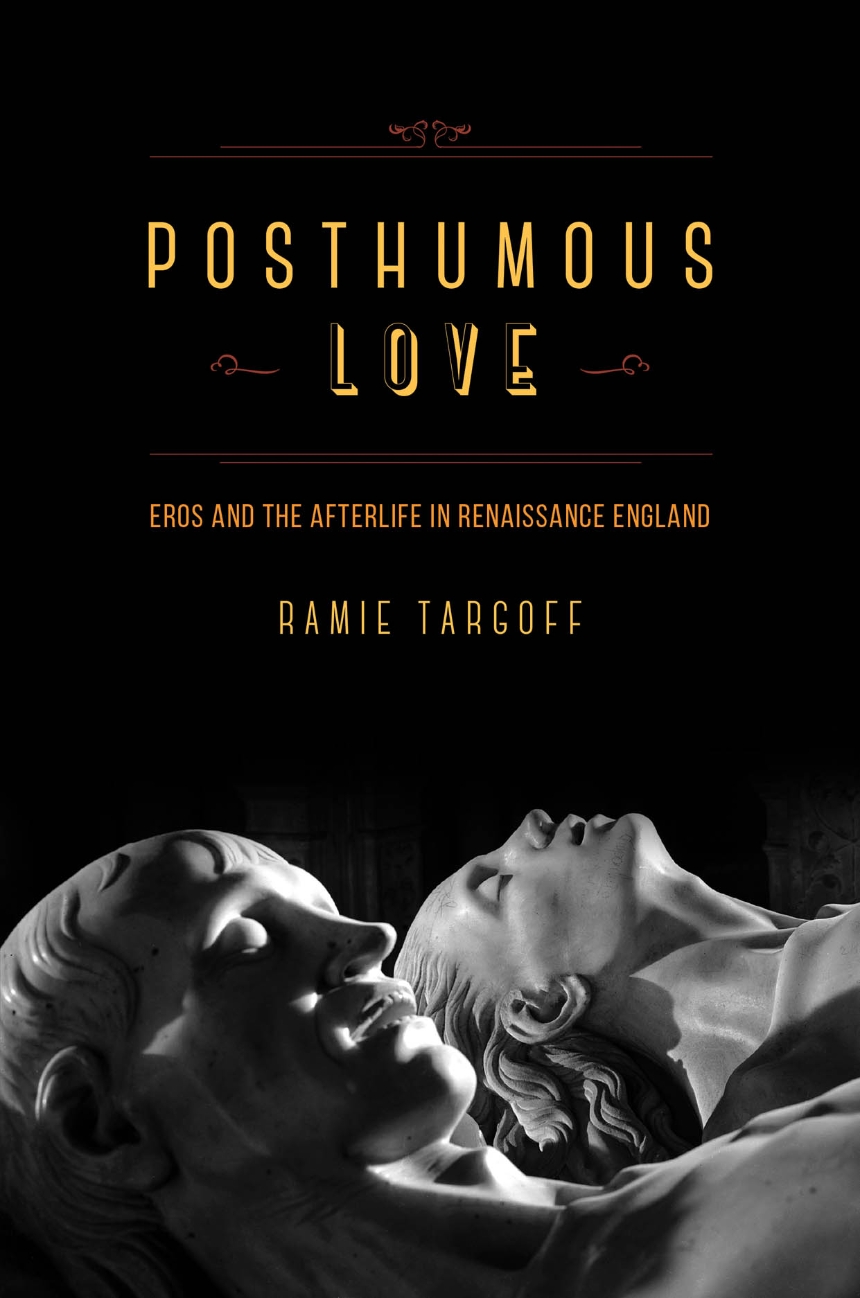Posthumous Love
Eros and the Afterlife in Renaissance England
For Dante and Petrarch, posthumous love was a powerful conviction. Like many of their contemporaries, both poets envisioned their encounters with their beloved in heaven—Dante with Beatrice, Petrarch with Laura. But as Ramie Targoff reveals in this elegant study, English love poetry of the Renaissance brought a startling reversal of this tradition: human love became definitively mortal. Exploring the boundaries that Renaissance English poets drew between earthly and heavenly existence, Targoff seeks to understand this shift and its consequences for English poetry.
Targoff shows that medieval notions of the somewhat flexible boundaries between love in this world and in the next were hardened by Protestant reformers, who envisioned a total break between the two. Tracing the narrative of this rupture, she focuses on central episodes in poetic history in which poets developed rich and compelling compensations for the lack of posthumous love—from Thomas Wyatt’s translations of Petrarch’s love sonnets and the Elizabethan sonnet series of Shakespeare and Spencer to the carpe diem poems of the seventeenth century. Targoff’s centerpiece is Romeo and Juliet, where she considers how Shakespeare’s reworking of the Italian story stripped away any expectation that the doomed teenagers would reunite in heaven. Casting new light on these familiar works of poetry and drama, this book ultimately demonstrates that the negation of posthumous love brought forth a new mode of poetics that derived its emotional and aesthetic power from its insistence upon love’s mortal limits.
Targoff shows that medieval notions of the somewhat flexible boundaries between love in this world and in the next were hardened by Protestant reformers, who envisioned a total break between the two. Tracing the narrative of this rupture, she focuses on central episodes in poetic history in which poets developed rich and compelling compensations for the lack of posthumous love—from Thomas Wyatt’s translations of Petrarch’s love sonnets and the Elizabethan sonnet series of Shakespeare and Spencer to the carpe diem poems of the seventeenth century. Targoff’s centerpiece is Romeo and Juliet, where she considers how Shakespeare’s reworking of the Italian story stripped away any expectation that the doomed teenagers would reunite in heaven. Casting new light on these familiar works of poetry and drama, this book ultimately demonstrates that the negation of posthumous love brought forth a new mode of poetics that derived its emotional and aesthetic power from its insistence upon love’s mortal limits.
Reviews
Table of Contents
Acknowledgments
Introduction Burying Love
Introduction Burying Love
1 Love after Death in the Protestant Church
2 Banishing Death: Wyatt’s Petrarchan Poems
3 Dead Ends: The Elizabethan Sonnet
4 The Capulet Tomb
5 The Afterlife of Renaissance Sonnets
6 Carpe Diem
Conclusion Limit Cases: Henry King and John Milton
Epilogue “An Arundel Tomb”
2 Banishing Death: Wyatt’s Petrarchan Poems
3 Dead Ends: The Elizabethan Sonnet
4 The Capulet Tomb
5 The Afterlife of Renaissance Sonnets
6 Carpe Diem
Conclusion Limit Cases: Henry King and John Milton
Epilogue “An Arundel Tomb”
Notes
Index
Awards
Phi Beta Kappa: Christian Gauss Award
Shortlist
Modern Language Association of America: James Russell Lowell Prize
Honorable Mention
